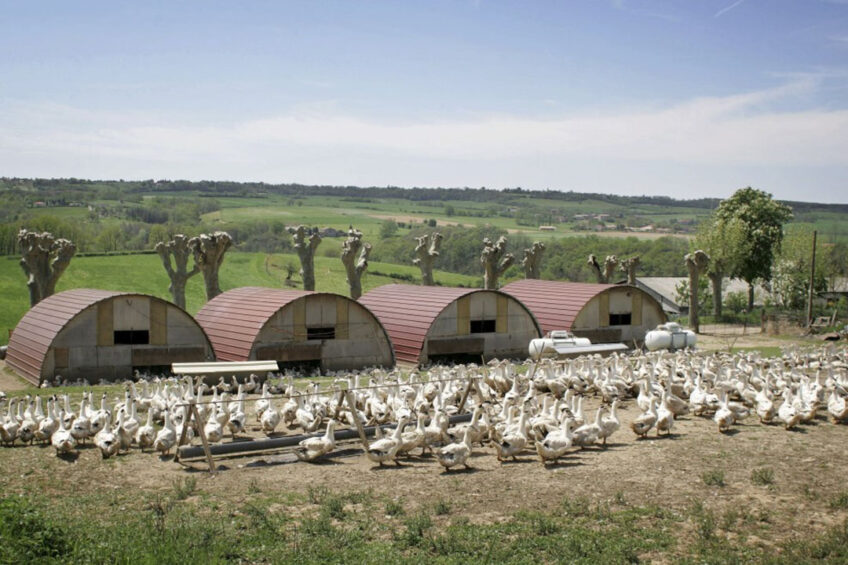French foie gras producers face catastrophe

Foie gras producers in France are facing a catastrophe. The major outbreak of bird flu this winter and spring has lead to serious shortages of chicks for the new production cycle.
Foie gras organisation, CIFOG, has warned that there is probably going to be a lot less of the delicacy around Christmas, when most of it is eaten. The organisation has also asked the government for urgent support to prevent many producers from having to quit the industry.
The most widespread outbreak
Although France has been hit by bird flu in 2 of the 3 previous winters, the 2021-22 outbreak was the most widespread in its history. Over 1,600 poultry producers in total have been hit and more than 16 million animals culled, mostly to prevent further spread around infected premises.
But unlike the previous outbreaks, this time it was not only the southwest of the country (mainly the Landes and Ger regions) that were badly hit, but the epidemic also hit the Pays de la Loire department and the Vendée area further north along the coast.
In the southwest, several hundred duck and geese holders were infected, often for the second or third time in a few years. But in the more northern region, which was spared from infections in previous outbreaks apart from individual cases in wild birds, it was mostly in the parent farms that produce the chicks that bird flu was detected.
As the rule requires, all animals on infected premises must be culled while all buildings must be thoroughly cleaned and disinfected and left empty for 4 weeks – the vide sanitaire – before any new production cycle may get started.
Shortage
So, although many growers in the duck-intensive regions of the southwest were allowed to re-start and fill their houses again some time ago, many struggled to find new chicks to do that.
“This enormous shortage is linked to the unprecedented impact of this epidemic on the hatching sector, particularly in Pays de la Loire, the region representing 100% of the global genetics and over 70% of the French reproduction potential for the mullard duck. Almost 90% of the reproducers have been hit and it will take many months before that resource can be built up again,” said the organisation for the foie gras industry, Comité interprofessionnel des palmipèdes à foie gras (CIFOG), in a letter to the government.
“Despite the intensive efforts of the integrators to restart their flocks, the professionals estimate that the growers will be able to provide less than 50% of the necessary animals to restart the sector. We don’t expect to see any return to a more normal situation before the second quarter of 2023,” CIFOG added.
Urgent support
CIFOG has therefore asked Marc Fesneau, the minister for agriculture and the food sovereignty, for urgent support. “We want to alert the minister to the extreme seriousness of the situation in the sector, both for the growers and for all professionals who all urgently need further financial support. Although producers in the southwest, Pays de la Loire and Périgord regions are allowed to restart production, they are seriously hindered by the severe shortage of chicks. Most are not able to get what they’ve ordered and there is no compensation. Something which is creating a catastrophic situation for the whole sector,” CIFOG stated.












